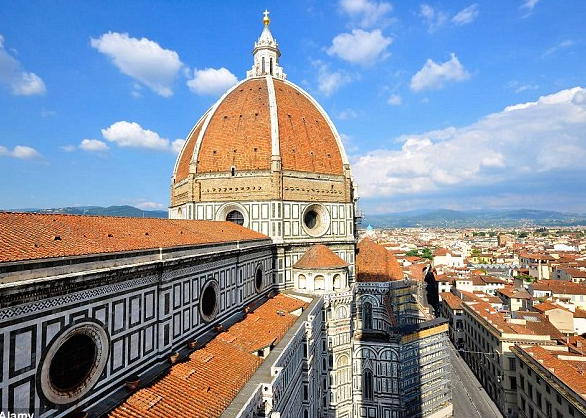 Many of us were asked somewhere in our education to read Dante’s Divine Comedy, or at least part of it. Mine came as a 1st year college student, if my memory serves me right, and I was so intensely focused on my girlfriend (now my wife, Kris), my own studies in Bible and theology, playing basketball at Cornerstone, and buying books to build my library that I barely recall reading it… just that Dr Portfleet somehow got us all to read some of it. I think it was in a Norton Anthology.
Many of us were asked somewhere in our education to read Dante’s Divine Comedy, or at least part of it. Mine came as a 1st year college student, if my memory serves me right, and I was so intensely focused on my girlfriend (now my wife, Kris), my own studies in Bible and theology, playing basketball at Cornerstone, and buying books to build my library that I barely recall reading it… just that Dr Portfleet somehow got us all to read some of it. I think it was in a Norton Anthology.
About ten years ago, though, I decided to read in succession Homer’s Iliad and Odyssey, Vergil’s Aeneid, Augustine’s Confessions, and Dante’s Divine Comedy, each in their entirety and not just stopping at the end of Inferno in reading Dante. It was one of my favorite periods of reading in my life.
But reading Dante is particularly challenging, so I have no idea what we did as 1st year students in college. The names and allusions in Dante are often from 13-4th Century Italy, from the inner workings of the Guelphs and the popes and local politicians, and then there’s Beatrice and medieval courtly, romantic love … all wrapped up in verse that descends and then ascends all the way to the Trinity (his depiction of God as rings of light is almost perichoretic and so unlike some trinitarian thinking) … well, most of us need a good commentary or some helps. I am grateful for the Knopf edition of Dante in their Everyman’s Library, translated by Allen Mandelbaum with exceptional notes by one Peter Armour (almost 250 pages of notes!), because it helped every step of the way.
But there’s a shorter way to get the job done, and it’s brand new. Peter Celano — can’t think of a better name to help us with the Italian Dante — has a new book called Faces from Dante’s Inferno, with the subtitle that tells you what it does in simple, direct prose: Who They Are, What They Say, And What It All Means. Call it a mini-commentary on the names of those Dante includes in his journey. I thought I’d browse through the book and look at it later in more detail but I couldn’t put it down. A succinct and able guide to one of the Western world’s greatest pieces of literature.
Unlike Dante himself, Dan Brown’s stuff is not great but it sells better. So Chuck Leddy has said of Brown’s newest novel:
Assessing Dan Brown from a literary perspective seems almost beside the point. No matter what the critics might say about his overwriting, his overuse of clichés, his paper-thin characterizations, and his impenetrably murky plots, Brown sells tens of millions of copies of every historical thriller-mystery he writes. Brown isn’t just a novelist; he’s a crossover pop culture sensation.
Forget Brown and read the man whose imagination shaped the Christian world’s perception of hell and beyond.















